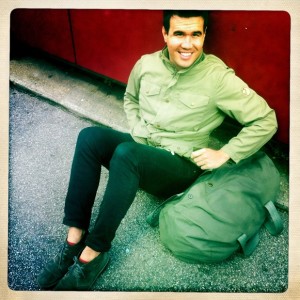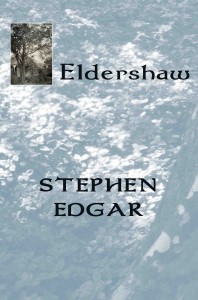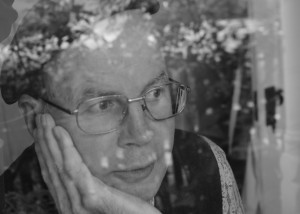 Nik Tan was born in Melbourne and is an Australian of Chinese-Indonesian background. He is a lawyer and former Department of Foreign Affairs and Trade officer, where he worked on the Indonesia desk. He is currently studying a Master of Laws at the University of Copenhagen and working at the Danish Institute for Human Rights. Nik is a freelance writer who has had work published in Eureka Street, Inside Indonesia and Muse.
Nik Tan was born in Melbourne and is an Australian of Chinese-Indonesian background. He is a lawyer and former Department of Foreign Affairs and Trade officer, where he worked on the Indonesia desk. He is currently studying a Master of Laws at the University of Copenhagen and working at the Danish Institute for Human Rights. Nik is a freelance writer who has had work published in Eureka Street, Inside Indonesia and Muse.
Idul Adha
Novi is up early climbing over Ari and sitting for a moment in the pre-dawn darkness. Her singlet slips down at one shoulder, her pregnant belly just discernible within the grey cotton.
She steps outside to the concrete shower, a cubicle open above chest height. She slings the singlet over one wall and slips a purple elastic band from her wrist around her hair, tying it back.
Reluctantly, she takes one of the hand-buckets strewn around the stone square and dips into a full bucket. She raises it high and pours a cascade of water onto her forehead. The water parts her black hair and runs down her face, neck, breasts, back. Gasping, she leans down again, trying not to upset the water onto yet more dry areas of her shivering body.
With each bucket, the stinging shocks ease as she ladles first one shoulder and then the other, until new bucketfuls come fast and sure, slapping on her wet brown skin, and puddling on the grey floor.
Novi rubs a layer of coconut oil into her hair and leaves it to set and absorb into her scalp. She uses an aged bar of soap sparingly, concentrating on her armpits, groin and feet. She eases a towel around her and pit-pats to the kitchen.
Although it is now grey outside, she lights the kerosene lamp. The light hits the recesses of the kitchen as the smell of the lamp’s fuel hits her nostrils, gritty and a little pleasant. She squats in her towel on a tiny wooden stool, legs open as she leans forward, still dripping, to begin the day’s cooking.
In front of Novi is a rectangular woven mat, slightly raised on four squat legs. On it lie stunted carrots, long beans, fresh greens, red sugar, garlic and shallots. Two round woven pans sit at one end of the mat, each half-full with rice.
She rests a chopping board the size of her stool on the edge of the mat’s solid wooden frame. Now awake and cold, she finely chops garlic and shallots into a small, potent mound.
Novi doesn’t need to look as her hands work, instead her attention is set to the dirty window directly in front of her. The cold scent of chilli mixes with and then overpowers the kerosene.
Moments before the sun’s morning rays cut through the soil caked on the window, a rangy cock walks past stopping as the compulsion to crow forces the sound from its upstretched throat. Answering calls from neighbouring houses herald the morning.
Taking a truss of fresh chillies Novi drops her right shoulder into the mortar, the pestle grinding red skin, flesh and white seeds into first a lumpy pulp and then a thick paste.
She turns her back against the sun, concentrating on the firelicked wall above the gas burner. She places the wok over its blue flame and waits. When a dash of oil sizzles she measures in teaspoons of the chopped spices and sambal before adding rice from one of the round baskets. She scoops the rice upon itself coating the glistening grains in chilli and oil. She leaves all the food for Ari, choosing hunger over breakfast.
Novi dresses in a starched white blouse and neat blue jeans. Leaving the coconut oil to absorb, she pares her hair back, shuffles into a pair of yellow flip-flops and starts for the mosque.
She picks carefully between the stone path before her and passes of her birth, schooling and marriage. Each house is a little bigger than the last as she approaches the mosque, the centre point of the village.
Around Novi insects buzz among sapling green trees, the morning sun reflecting off the white stones. Beside each house are small paths leading and losing one another throughout the steep steppes of fecund rice shoots.
Today is Idul Adha. She reaches the blue and dirty white mosque, ignoring the pack of boys milling around the muezzin’s tower, waiting their chance to scale the ladder and deliver the call to prayer.
One of them is her little brother, Alit. She stops and calls him over, waving palm-down. He runs over, face full of expectation at the chance to broadcast to the whole village the word of Allah. At thirteen, he is still a boy and shows no signs of manhood.
“Alit, how is our grandmother?” Novi demands of him.
“She is sick”, Alit replies, eyes darting back to the scrum of boys who are now calling their friend up the tower to come down.
“I know that”, she says impatiently, “but does she eat?”
“Nothing since grandfather died”, Alit says, eyes back on his sister now, lowered in respect even though they are the same height.
“Tell her I will visit this evening”, she says. She pushes him back to the gaggle of waiting boys, who are now grasping at the shorts of a boy descending the ladder. Alit nods as he turns and runs back to the tower, pushing past his friends to climb to the top of the tower.
Her grandfather died 27 days ago and her grandmother is still fasting. At his funeral she had kissed the ground in which he lay and vowed not to eat until she joined him. Her grandmother Oma Dirjo was bent by long years planting and harvesting rice, her toes splayed by time.
As she hears Alit begin his discordant calls, she passes into the mosque, leaving her flip-flops to join the neat line of shoes and sandals already there. Inside are friends and cousins, kneeling and murmuring invisible lines of the Koran. Novi prays for her grandmother and her own unborn son.
After prayers, Novi walks up the cobbled hill, past the cemetery to the small plateau where neighbours, cousins and friends gather. One hundred people stand around the clearing, chatting and smoking. In one corner, a frenzied group of children, Alit among them, pulse and chatter as one body.
In the middle of the clearing, on a blue tarpaulin it stands. Grey flanks shudder with anxiety, or maybe merely to discourage flies. Five men stand around the cow, Ari at its head, holding the rope leading from the bullring. He drags down the rope, asking the beast to kneel. Ari is dressed in faded green football shorts and a white singlet, his bare sinewy arms straining against the animal’s strength. His kind eyes are lowered against the sun in concentration.
As the cow reaches its haunches, ungainly but forbearing, one man ducks under its girth and deftly slips the noosed rope over her front hooves. She haltingly lowers her bags legs, tail flicking at flies. A second man slips an identical noose around her back hooves and draws it closed.
The two remaining men gently begin to push her left flank, coaxing the beast onto her right side. In silent terror she shivers, unable to kick or stand. Almost lovingly, Ari grasps her neck and pulls her down with him, his two brown arms barely encompassing the white-grey folds of her broad neck.
The children play on, unaware of the theatre and the blue tarpaulin’s pride of place centre-stage. Novi stands, arms crossed beside two of her sisters, watching Ari caress the cow to the surrender of slaughter. The ring of people watches and waits patiently, ten metres or more from the tarpaulin. This will take some time.
The cow is down, Ari still at its head, two men at its back and two at her outstretched knee-locked front legs. They pull her heavily so her head spills over the edge of the tarpaulin and above a small but deep hole, a plastic bucket set inside.
Ari is kneeling now, still embracing the cow’s neck. Her eyes loll in panic, dark and deep. Ari nods to Novi’s father, who stands to one side in ceremonial dress. His garb is Javanese, not Arabic, and except for the white cap on his head, he is not recognisable as a Muslim at all. He deliberately steps to the undulating body, and stops with his hands poised above the cow’s head and Ari’s kneeling body. His hands form the shape of an open book.
The chatter stops and even the children have stopped their play. The spectacle of the climax has finally drawn the attention of the audience. Alit runs to the tarpaulin and takes up the long knife. With both hands he lugs it to Ari.
For the first time, everyone can see the trauma as the cow lies bound and stricken before death. The clearing is silent now, but for the buzzing flies and the shuffling bulk of her doomed struggles.
Ari bends over the grey folds of the cow’s neck. Novi stands on the inside of the body, sees the regular rise and fall of Ari’s knife and the crimson waves falling over his hands and into the ground. The cuts are surprisingly gentle, like a fine saw slicing into soft wood. Ari’s strokes are sure and graceful. The cow makes no sound, its struggles spike then cede, its mahogany eyes turning wooden and glassy.
The final act is over, meditative children entranced by the show of death turn back to one another and begin to shake off the solemnity demanded by rite. Whispered Arabic honours Abraham’s willingness to sacrifice Ismael, his own thirteen year-old son. Two men replace the bucket, before Ari flays again through the slopes of grey skin, folding into wet linings of flesh.
Adults turn away from the stage too, still encircling, but now facing one another and filling the blood-heavy air with holy day chatter. Novi’s father, having presided over the ritual, walks three steps from the cow’s carcass, squats down and, tucking his sarong between his legs, lights a cigarette.
Novi stays watching, stepping forward to see the flow of blood into the ground. Ari is leant over the gaping head making swift nicks and cuts to ease warm brooks’ passage from arteries to soil. The four other men get busy now, laying into the body with their own machetes.
One man removes the hoofs while another carves lines in the slack skin like a tailor. Swathes of grey cloth come off, lubricated by the stretching inner layer of membrane and muscle. Cartilage and flesh shine in the sun, the mechanics of life exposed in death.
Two hours later six buckets in different colours are full of warm blood and stand in line beside the tarpaulin surrounded by a cloud of flies. Where the cow’s bulk lay sits a red pool, seeping across the blue surface, only fist-sized lumps of offal lolling in the scourge. The meat is distributed in thirds: one-third to the family; one-third to friends and neighbours; and one-third to the poor.
Everyone holds their own trussed plastic package of the spoils, rough rectangles of flesh, with a complementary bag of white and red bones for those who wish it. The mass that stood as a sentient beast now sits heavy and silent on children’s shoulders and in the arms of their mothers.
Novi and Ari turn for home, she holds a bloody bag and he nurses his hooves in one hand, his long curved knife scraping in the dust in the other. They take the prized body parts to her grandmother, Oma Dirjo, hoping she will agree to eat.
They arrive at her low doorway, calling out respectfully for the right to enter. Greeted by silence, Novi kicks off her sandals reflexively, thrusting the plastic bags of flesh at Ari and runs inside to check on the old lady. She has been left alone since morning as her children and grandchildren flocked to the slaughter.
She lies huddled on her woven mat bed, dressed in black mourning for her husband. She is on her side facing Novi, perfectly still. Her silver hair falls across her neck and black blouse. Novi knows she is gone, and pauses in the doorframe to take in the grace of her grandmother.
Shards of sunlight slant across the black cotton covering her back and legs. Her feet are neatly tucked together, pale soles pointing towards the sun. Her knees are drawn in towards her chest. Oma Dirjo’s wizened, lined face is hollow and peaceful. Above her head sits a portrait of her husband as a young man, black and white and blanched by time.
Pushing off from the doorframe, Novi walks reverently to her grandmother as if afraid to wake her. Practicalities run through her head: calling the uncles and aunts to attend her; explaining the death to her young cousins, nieces and nephews; organising the cleansing and final burial alongside her grandfather.
She leans down beside Oma Dirjo and holds her knobbly, cracked hands. Novi cries out suddenly, a surge of pain stabbing her gut as she realises her grandmother will never meet the son in her belly.




 Eldershaw
Eldershaw


 Melbourne-born poet, Peter Bakowski, keeps in mind the following three quotes when writing poems ‐ “Use ordinary words to say extraordinary things’–Arthur Schopenhauer, “Writing is painting”– Charles Bukowski, anand “Make your next poems different from your last”–Robert Frost. Visit his blog
Melbourne-born poet, Peter Bakowski, keeps in mind the following three quotes when writing poems ‐ “Use ordinary words to say extraordinary things’–Arthur Schopenhauer, “Writing is painting”– Charles Bukowski, anand “Make your next poems different from your last”–Robert Frost. Visit his blog 